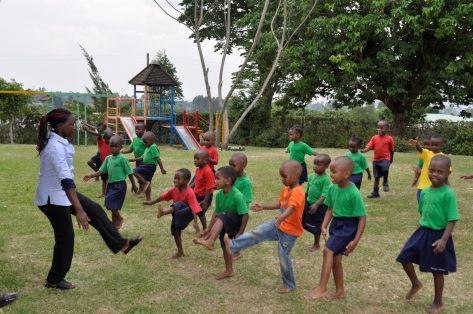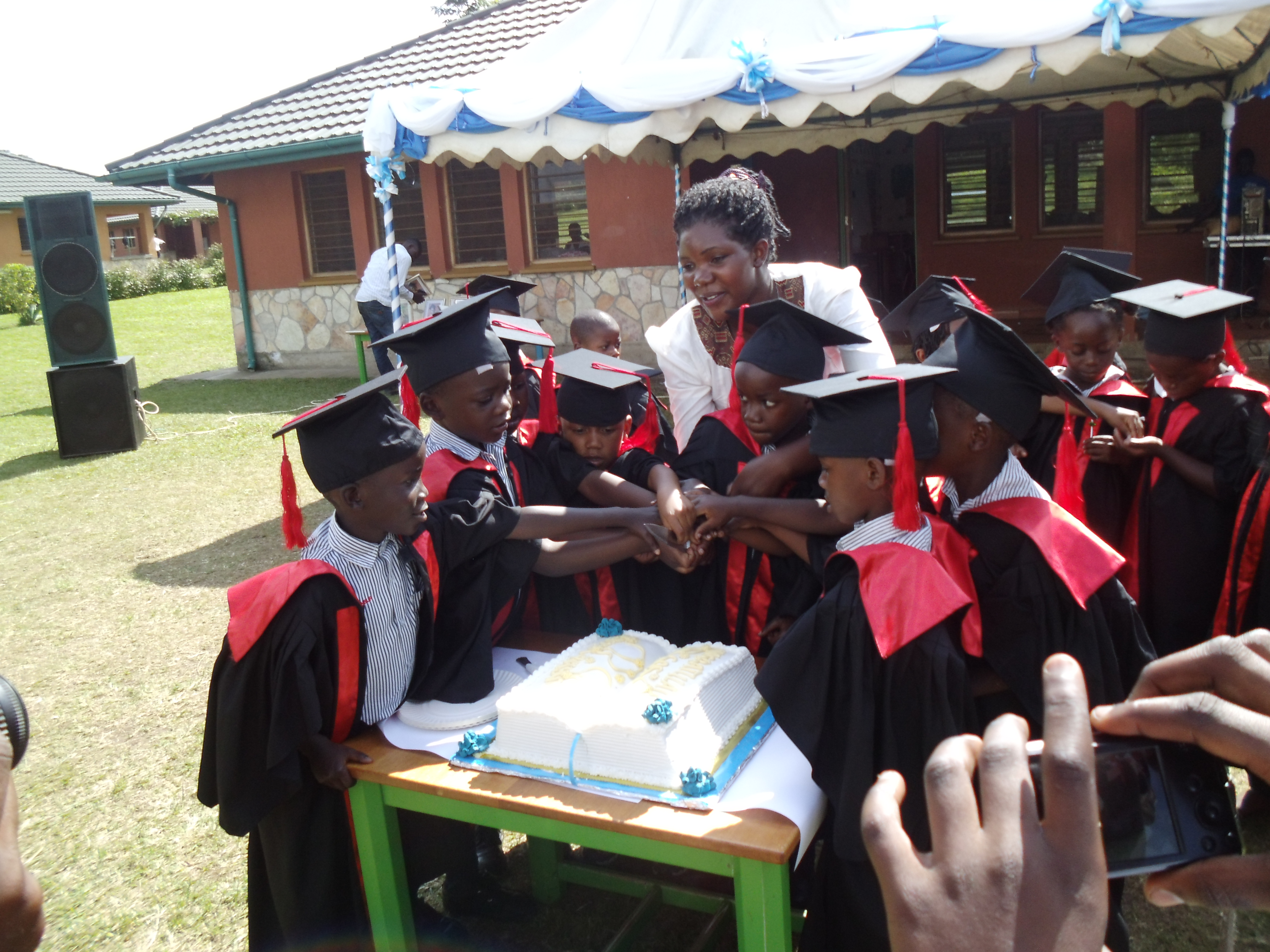Due to violence and HIV/AIDS, thousands of children are without protection

Children in our care during a gym lesson (photo: SOS archives).
SOS Children’s Villages began its work in the region due to the great number of vulnerable children suffering due to the civil wars, ethnic struggles, and diseases including HIV/AIDS. A 2004 UNICEF survey showed that there were 50,000 orphans in the region, and the number was projected to continue rising. Children who can no longer live with their parents generally live with their extended family in Uganda. But often, families do not have the means to provide for additional children, or they have lost family members, too. Especially when they are female-headed households or older relatives, it can be incredibly difficult for them to meet the children’s needs in financial, social, psychological, educational and health terms.
Support is urgently needed to rebuild a peaceful society
Uganda has suffered incredible violence in the past decades: in a conflict that began in the late 1980s, the Lord’s Resistance Army abducted over 25,000 children, recruited between 60,000 and 100,000 child soldiers, and displaced almost two million people. In the 250 camps for the internally displaced that were set up in northern Uganda at the height of the conflict, up to 1,000 people were dying each and every week, mainly due to malaria and AIDS. A truce was reached in 2006, but the violence continued, affecting neighbouring South Sudan and the Democratic Republic of the Congo too, where over 400,000 people have been displaced since 2008 alone.
Most of the Ugandan internally displaced people have now returned to their hometowns, but settling back into normal life entails countless challenges. Often basic services are missing and families lack support in rebuilding their livelihoods. For widows and orphans it is especially difficult, as they cannot reclaim the land the family formerly owned if the husband or father is dead. Children who experienced incredible violence from a young age can find integrating into society almost impossible, and they urgently need help and psychological support.
Most of the Ugandan internally displaced people have now returned to their hometowns, but settling back into normal life entails countless challenges. Often basic services are missing and families lack support in rebuilding their livelihoods. For widows and orphans it is especially difficult, as they cannot reclaim the land the family formerly owned if the husband or father is dead. Children who experienced incredible violence from a young age can find integrating into society almost impossible, and they urgently need help and psychological support.
What we do in Fort Portal
.jpg?width=800)
Happy to be graduating from Kindergarten (photo: SOS archives)
For children from the region who are no longer able to live with their parents, twelve SOS families can provide a loving home for up to 120 children. In each family, the children live with their brothers and sisters, affectionately cared for by their SOS mother.
The children attend the SOS Kindergarten in Fort Portal together with children from the neighbourhood, which ensures that they are integrated into the local community from a young age. The kindergarten also includes one class where children are taught according to the Montessori Method. The children then go on to attend local schools together.